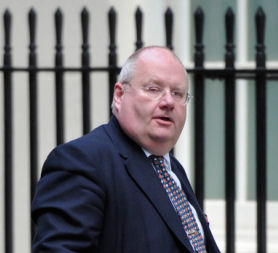Localism: ‘time to restore town halls to former glory’
Communities and Local Government Secretary Eric Pickles writes for Channel 4 News on the Localism Bill, saying “the time has come to restore town halls to their former glory”.

Once upon a time local government in this country had the power and the authority to make a difference. They improved public health, they cut poverty, they replaced slums with safe and secure housing. But decades of centralisation left councils hamstrung and ineffective. Now the time has come to restore town halls to their former glory: not out of a romantic attachment to the past, but because this is the best way to build a stronger economy and a fairer society.
The Localism Bill, which I published in Parliament today will fundamentally shake up the balance of power in this country. Councils will get a “general power of competence” – legal shorthand for cutting central government’s leash. With common sense restrictions – they won’t be able to saddle up and invade each other or impose taxes like modern day sheriffs of Nottingham – councils are now free to do whatever they want.
Sea change
This is part of a sea change in the relationship between councils and central government. Instead of instructions, I’m offering incentives – more money for councils who invest in new housing, for example. What I’m asking, though, is that instead of reporting to me, councils become much more open and transparent to local people so they can see where their money is going.
With common sense restrictions – they won’t be able to saddle up and invade each other…councils are now free to do whatever they want. Eric Pickles, Communities and Local Government Secretary.
The localism bill isn’t all about councils though: far from it. Neighbourhood plans for housing and growth will allow local people to decide for themselves what their area looks like. Community groups will get new rights to save or take over treasured local assets like shops, pubs and post offices. And people will be able to hold local referendums on issues that matter to them.
By pushing power out, getting Government out of the way and letting councils and communities run their own affairs we can restore civic pride, democratic accountability and economic growth – and build a stronger, fairer Britain.